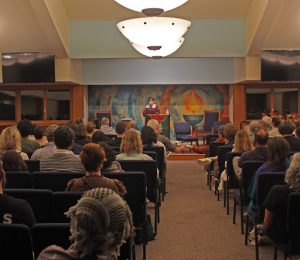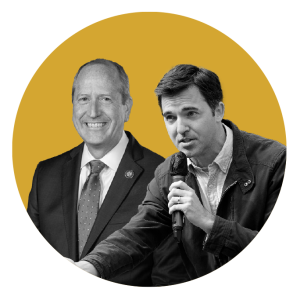Taking breaks from your phone yields benefits
Phone use has increased significantly throughout the COVID-19 pandemic, spreading detrimental effects
A student’s screen time can exceed 12 hours on certain days, far above what is healthy.
February 17, 2022
You may have seen the Progressive Insurance commercials about turning into your parents and thought, “it couldn’t be me, not after what they put me through in high school.” Believe me, I was on the same page. They just don’t understand… what it’s like to live in the digital age, how teenagers are these days, or basically anything about my adolescent life and how it differed from theirs.
My dad called my phone the greatest evil of our generation and gleefully set screen time limits on my phone in an attempt to help me better manage my time, while my mom begged me to go on walks with her in hopes that the endorphins would improve my ‘attitude’. They lamented weekends lost to sleeping in, reasoning that waking up earlier and regulating my sleep schedule would improve my wellbeing. I was never convinced.
But I was happy. Right?
After downloading TikTok in April 2019 to make a video of me riding a horse to the “Old Town Road” Remix, virality sadly escaped me — and so did my remaining attention span. But that’s fun! Right?? I loved scrolling through videos of my peers commiserating about adolescence, influencers sharing their photo hacks, daily routines and lifestyle tips, music recommendations, Adam Coil appearances, celebrity drama, hot girls riding horses, and more. I scrolled forever because the content never ceased.
Freshman year, my schedule was pretty booked: wake up, go to class, go back to bed, watch every Instagram story, scroll to the end of my Twitter timeline, and then watch TikToks until my roommate turned the lights off. Some (my therapist) might call this depression, but I just called it “chillaxin” (direct quote from my finsta). My parents encouraged me to go to the gym and I started seeing a nutritionist and a wellbeing coach, but I spent every other waking hour glued to my phone. I know, you know, we all know that isn’t healthy, but I couldn’t stop myself. After a depressing freshman year ended with the onset of the COVID-19 pandemic, my addiction grew worse. Fear of missing out melted my mind until I got “lost in the sauce”, eventually elevated to the status of what many would call “chronically online”.
Sophomore year’s virtual classes further enabled my phone use, and although I learned a lot over quarantine, I was in desperate need of touching some grass. Therapy helped some, but my parents harping on the detriments on social media only pushed me further away from recognizing the problem.
A lot of the TikToks on my feed nowadays are self-help hacks for improving your wellbeing. As it turns out, I’m much more inclined to listen to strangers on the internet than my nagging father. When TikTokers romanticized getting up early to shower at sunrise, I called it self care. When they told me not to use food as a reward or conditionally eat based on my productivity, I developed a better relationship with food. And when tutorials for breaking your phone addiction started showing up, I confronted the biggest source of my problems, and I did the unthinkable of setting my own screen time limits.
I haven’t told my parents about this revelation because I’m embarrassed to say that they were right all along. While I can still ignore my app limits, implementing downtime and acknowledging how long I spend on my phone has reduced my daily averages and improved my productivity in recent weeks. I may not be as up-to-date on Kanye’s antics as I could be, but I’m no longer starting every day with a dopamine high, only to feel deflated and burnt out as soon as I sit down for class minutes later. Tricking myself into using my phone less has forced me to spend my time more creatively, and the replacement activities I’ve found are significantly better for my mental health.
Many internet users are coming to similar conclusions as we begin our third year of the COVID-19 pandemic. For some, the trend of romanticizing your life doesn’t work very well if you waste the daylight on screens and spend the evenings wallowing in the guilt of wasting the day … so a commitment to improving your wellbeing turns into a case of faking it until you make it. For others, disillusionment with the damage of early internet use has grown as therapists try to unpack our toxic relationships with social media and the psychological explanations behind it. The way I think about the world around me and my place in it is shaped by my experiences growing up on the Internet, and while those experiences were valuable, stepping away from that world has only been good for me. My reluctance to side with my parents on the battle we’ve fought for my entire adolescent life prevented me from any attempt to see their point of view.
If you find yourself in the same situation, I encourage you to dip your toes into the waters of humility and consider whether living online is actually bringing you joy. Virtual forums are essential to providing safe spaces for everyone to find community these days, and friendships are heavily facilitated by opportunities in the digital world. But we’re in college! Sit on the quad, go to Cookout, steal flowers from the front of Wait Chapel or take one minute to stare directly into the next solar eclipse. Whatever it is, enjoy your youth and any opportunity you may have to spend less time watching other people live their lives and start living yours.
Update Feb. 20, 2022: This article has been adapted to include portions that were cut from the print issue due to spacing limitations.













